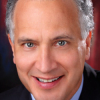Mark Kennedy

Mark Kennedy
Mark Raymond Kennedy, is an American businessman, Republican Party politician, and president of the University of North Dakota. Kennedy previously led the George Washington University Graduate School of Political Management. Before that, he served as a member of the United States House of Representatives from 2001 to 2007. Kennedy did not seek re-election in 2006, instead running for the U.S. Senate. He lost the general election to Democratic–Farmer–Labor nominee Amy Klobuchar...
NationalityAmerican
ProfessionPolitician
Date of Birth11 April 1957
CountryUnited States of America
We must continue to work hard on the federal level, to make sure that our local law enforcement and communities have the tools and resources they need to fight this war against methamphetamine, and keep our kids safe.
The Prescription Drug Benefit we passed in Congress is already working to make prescription drugs available and affordable for all seniors who depend on them, through the drug card that became available last year.
The lack of substantial resources and staffing along the Northern U.S. border poses a real security threat.
As I help my children get ready for a new school year, I often think about how education has played such an important role in my family.
I appreciate the wonderful education I received in Minnesota and believe the Minnesota education system is the best in the nation.
The United States armed forces and coalition troops deserve recognition and support for their work to remove Saddam Hussein from power, and ensure the safety and security of the American people, civilians abroad, and the people of Iraq.
I was the first boy in the Kennedy family to graduate from college.
This enemy of peace in the world today is unlike any we have seen in the past, and our military is learning from, and building on, previous successes while carrying peace and freedom into the future.
As a Member of Congress, I've continued my family's tradition of focusing on education.
We must be willing to pay inspiring math and science teachers, who have high paying alternatives in industry, more to teach and reward students who take more challenging courses in high school.
There are some scary statistics out there: one in five kids aged 10-17 have received a sexual solicitation or approach via the Internet.
We must conserve our environment and pass it on to our children in as good or better condition than it was passed to us.
But the best thing Washington can do for education is realize that our role is limited. Washington must keep its promises, but let those who know our childrens' names- parents, teachers and school board members- make education decisions.
Too many vital education dollars that should be spent in the classroom are bouncing around in the federal bureaucracy.